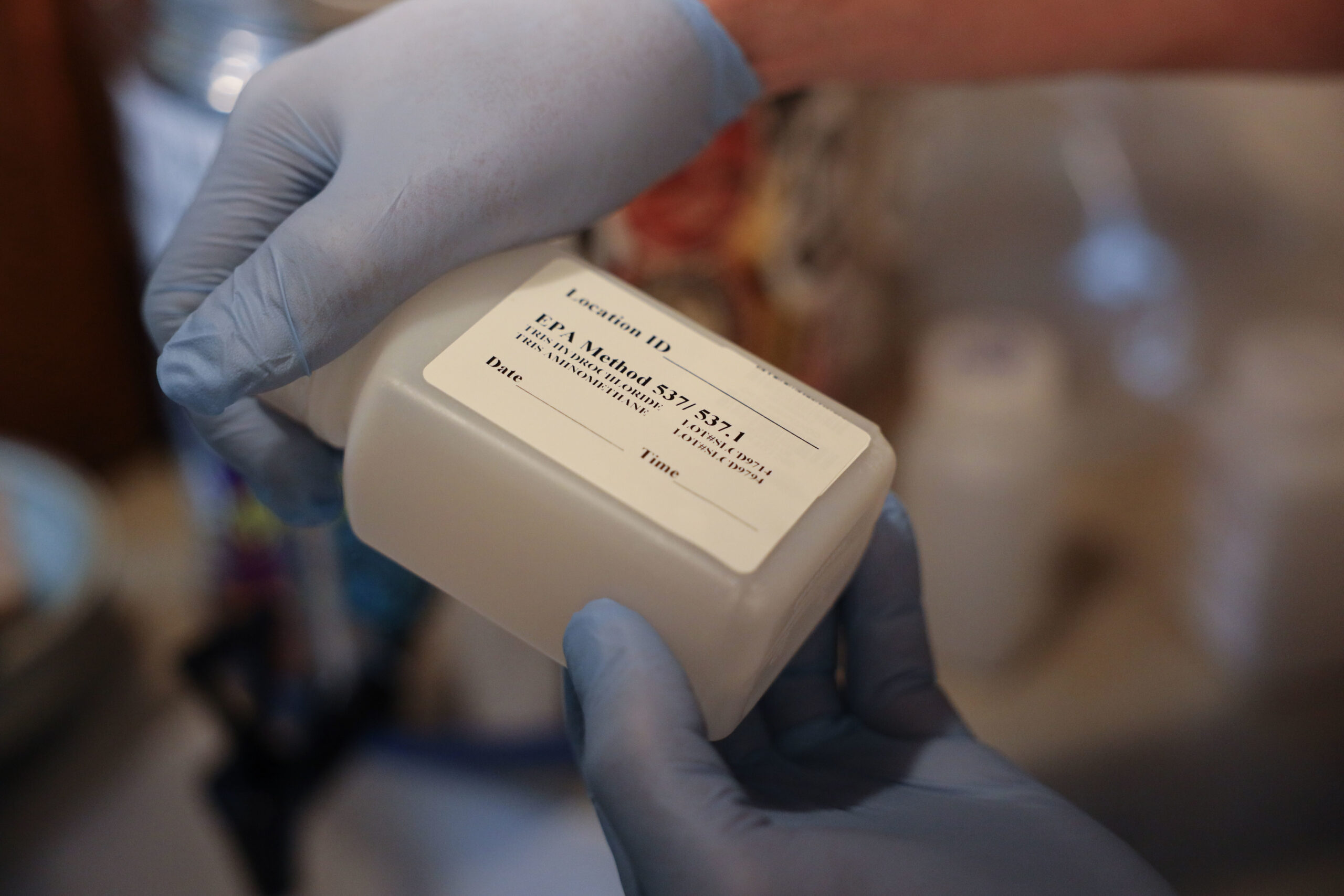Supporters of legislation that would address contamination from chemicals known as PFAS say they would protect the environment and public health. But, opponents say the bills would create costly requirements for industry and local governments that would have to comply.
The chemicals, which are found in many everyday products, don’t break down easily in the environment and are associated with harmful health effects.
Northeastern Wisconsin lawmakers introduced two bills last week that would require the Wisconsin Department of Natural Resources to create and enforce standards for perfluoroalkyl and polyfluoroalkyl substances (PFAS). The bills would also provide funding for PFAS programs and positions, $5 million biennially for grants to local governments, free blood testing and a cancer cluster study of individuals living near PFAS contamination in the Marinette area.
Stay informed on the latest news
Sign up for WPR’s email newsletter.
“Our goal through this legislation is to take a reasonable and meaningful step forward in addressing the contamination in northeast Wisconsin and elsewhere,” said state Rep. John Nygren, R-Marinette.
An Assembly committee held a public hearing on the bills Thursday, which drew support from the DNR.
One proposal would allow the DNR to create an emergency rule that would set groundwater standards for PFOA and PFOS — two of the most widely studied PFAS chemicals. The Wisconsin Department of Health Services has previously recommended a groundwater standard of 20 parts per trillion for the two compounds.
Darsi Foss, the DNR’s environmental management division administrator, said groundwater standards for PFAS are the most needed in the near future.
“In particular to help the people in the Town of Peshtigo where we have about 50 or 60 wells impacted by the Johnson Controls site,” said Foss. “This would help us determine when we ask the responsible party — Johnson Controls — to extend or provide permanent safe water. That groundwater standard, if in effect, would help us say who gets hooked up in that community.”
Johnson Controls International is the parent company of Tyco Fire Products, which has been dealing with PFAS contamination that has spread from its fire training facility in Marinette.
Others voiced concern about the creation of enforcement standards for PFAS, including the Wisconsin League of Municipalities and Municipal Environmental Group. Curt Witynski, the league’s deputy director said the American Water Works Association found that treatment costs would increase exponentially for public water and wastewater systems if they were forced to meet the state’s recommended standard as opposed to the U.S. Environmental Protection Agency’s advisory level of 70 parts per trillion.
“There’s a significant cost associated with that,” he said.
A representative of the state’s largest trade association agreed. Scott Manley with Wisconsin Manufacturers & Commerce spoke out against the bill’s provision to create an emergency rule that would set groundwater standards for PFAS, saying it would circumvent the process and limit public input.
Manley noted Canada has set drinking water standards of 200 and 600 parts per trillion for PFOA and PFOS.
“How does Canada think 200 and 600 parts per trillion are protective, but the Department of Health Services thinks it’s 20 combined for both of them?” he said. “I think those are fair questions that policymakers should consider and that the general public ought to have an opportunity to talk about, but the process in this bill really minimizes, if not completely wipes that process out.”
The differing standards reflect the ranging approach in regulation of the chemicals among countries and states. However, research has found that PFOA has been linked to high cholesterol, thyroid disease and certain cancers.
Industry groups like the Wisconsin Paper Council, American Chemistry Council and Midwest Food Products Association registered opposition to the bills. Several groups took issue with a requirement that potential dischargers of PFAS would have to provide proof of financial responsibility to clean up any contamination. They argued agencies like the DNR should address the source of PFAS contamination instead of focusing on industries or municipal systems that may end up handling contaminated water and wastewater.
Environmental groups like the Wisconsin Wildlife Federation, Wisconsin Conservation Voters and Clean Wisconsin spoke in favor of the legislation, highlighting the risk to residents if the state fails to act.
“As testing for PFAS increases, there will likely be more communities that find themselves with a new water contamination problem to confront,” said Carly Michiels, government relations director for Clean Wisconsin. “These bills along with the efforts the DNR is undertaking through rulemaking will be an important step forward in setting standards and getting us on the right path forward.”
There are at least 30 sites across the state where PFAS contamination has been found, according to the DNR. The state has just begun developing enforcement guidelines for PFAS through the agency’s rulemaking, which could take more than two years before any standards are in place.
The Senate Committee on Natural Resources and Energy is holding a public hearing on the Senate’s companion bills on Friday.
Wisconsin Public Radio, © Copyright 2025, Board of Regents of the University of Wisconsin System and Wisconsin Educational Communications Board.




